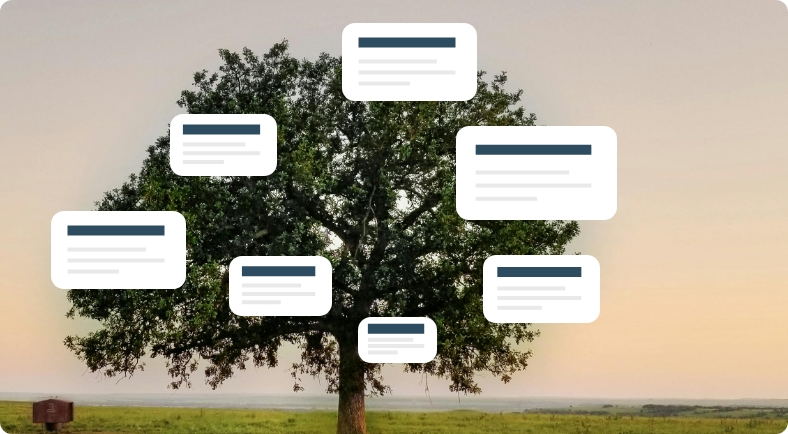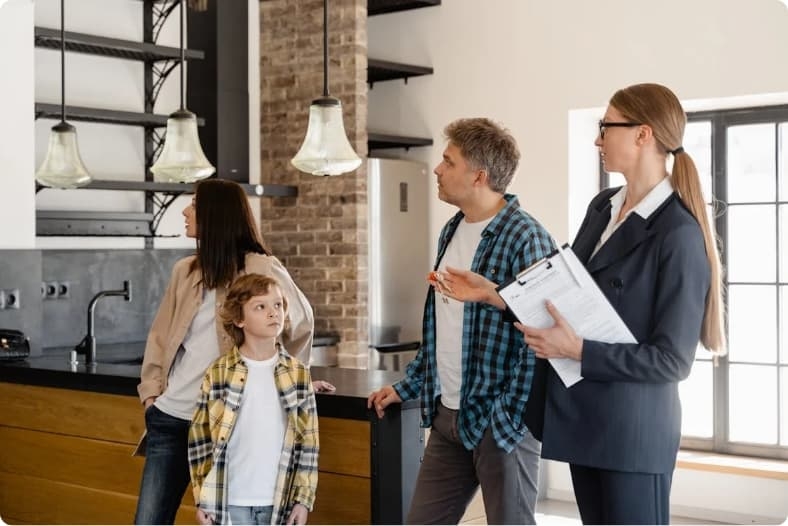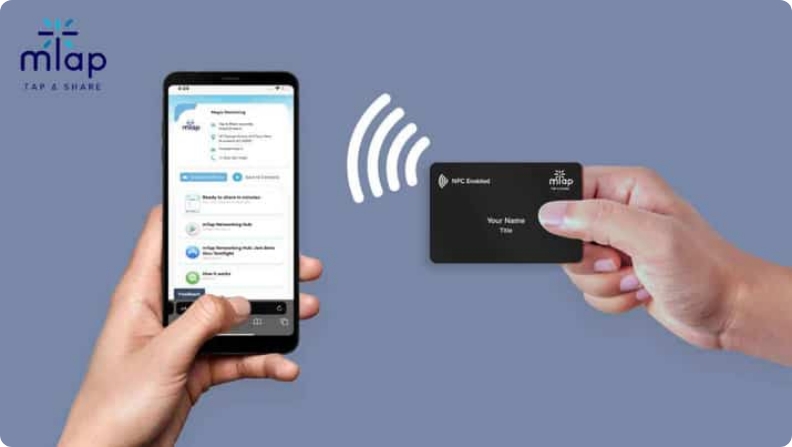Realtor Networking Secrets 2024

Upgrading Your Networking Game in 2024

2024 marks a significant shift in how real estate professionals connect, communicate, and cultivate relationships.
REALTOR® Networking is no longer just about face-to-face meetings and handing out business cards. It’s a multifaceted process that blends online engagement, personal branding, and strategic partnerships, leveraging cutting-edge tools and platforms that can enhance your digital and in-person networking efforts.
We’ll explore how to leverage data analytics for more targeted connections, the importance of a personal brand in the digital age, and innovative ways to engage with both peers and clients.
Embrace these changes, and you’ll find your networking efforts yielding more significant and more rewarding results.
Transformation of REALTOR® Networking

The transformation of REALTOR® networking is a response to the evolving real estate landscape. We will explore major trends and shifts that are redefining the way real estate professionals interact and build their networks.
From the rise of virtual real estate experiences and online communities to the growing importance of sustainability and social responsibility in real estate practices, these changes are reshaping what it means to be a successful REALTOR®.
We will examine how these shifts impact your networking strategy and how you can adapt to remain relevant and influential in this new era.
How to Change Your REALTOR® Networking Game in 2024

Change is the only constant, and in 2024, changing your REALTOR® networking game is crucial for success.
We will reveal actionable strategies and innovative approaches for reinventing your networking approach. We’ll guide you through rethinking client interactions, collaborations with other professionals and your overall presence in the real estate community.
This involves embracing new technologies, fostering continuous learning and understanding the changing needs and preferences of clients. You will be equipped with the tools and mindset you need to effectively adapt your networking strategies for 2024 and beyond.
The New Rules of REALTOR Networking
As we navigate through this guide, our goal is to empower you with knowledge and insights that will transform your networking approach.
Whether you are a seasoned REALTOR® or just starting, these strategies will help you build a robust, resilient and responsive network that will serve as the foundation for your success in the real estate industry.
Let’s Begin This Journey Towards Networking Excellence Together.

Contents
Establishing a Strong Online Presence
Actively Building And Maintaining An Impactful Digital Footprint, Including Crafting Compelling Profiles On Key Platforms
Implementing Targeted Social Media Content Strategies
The Significance Of Your Website And
How To Boost Visibility With Effective Search Engine Optimization (SEO) Techniques.
Creating Engaging Profiles on Key Platforms

Begin by identifying the most influential platforms for real estate professionals, such as LinkedIn, Facebook and Instagram.
On each platform, create a profile that not only presents your qualifications but also tells your unique story.
Use professional photos, write a bio that resonates with your target audience, and include clear, direct contact information.
Regularly update your profiles to reflect any new accomplishments or skills.
Why Your Website Matters

Your website is your digital storefront. Ensure it is professionally designed, easy to navigate, and mobile-responsive.
Update your site with high-quality content that showcases your listings, client testimonials, and expert blog posts.
Make sure the website has clear calls to action, such as contact forms or appointment scheduling options.
Gaining Visibility with Search Engine Optimization

To increase your online visibility, invest time in SEO.
Start by researching keywords that are relevant to your local market and integrate them into your website content, blog posts, and even your social media posts.
Regularly update your website with fresh, valuable content and work on building backlinks from reputable sites in the real estate industry.
Monitor your website’s performance using tools like Google Analytics and adjust your SEO strategies based on these insights.
Building Your REALTOR® Online Brand

Establishing a strong online presence is a proactive and ongoing process.
By crafting engaging profiles, implementing smart social media strategies, maintaining a dynamic website, and applying effective SEO techniques, you’ll not only reach a wider audience but also build a trustworthy and recognizable brand.
Each step you take towards enhancing your online presence solidifies your position as a knowledgeable and accessible real estate professional in the digital age.
Mastering Social Media Branding

In real estate, your social media brand is your most powerful asset.
As we embrace 2024, the digital landscape has evolved, making it crucial for REALTORS® to leverage social media not just as a tool, but as a strategic platform for branding and client engagement.
Your action plan for mastering social media branding includes learning to tell captivating stories, creating impactful video content and engaging with your audience in ways that not only build but also nurture lasting relationships.
Storytelling through Property and Success Stories

Transform each property listing into a compelling narrative. Start by identifying unique features of each property and weave these into a story that connects emotionally with your audience.
Don’t just list the specifications; talk about the experiences the home offers, the memories that can be created there or the tranquility of its surroundings.
When sharing success stories, focus on the journey more than the destination. Highlight your client’s initial challenges and how you navigated these hurdles together, culminating in a successful deal.
These stories not only showcase your expertise but also build trust with potential clients.
Video Content
Virtual Tours, Market Updates & More!

Embrace video as a key storytelling medium.
Start by creating virtual tours of your listings. Use high-quality video to walk viewers through the property, emphasizing features that are most attractive. Be descriptive, as if the viewer is right there with you.
Regularly produce market update videos. These should be concise, informative, and showcase your knowledge of the local real estate scene. Discuss trends, give tips and offer insights that add value to your audience.
Don’t shy away from behind-the-scenes content. Show your day-to-day activities or share personal insights about real estate. This helps you build a more relatable and approachable REALTOR® people will be attracted to do business with.
Best Practices in Building Engagement

Build engagement by posting consistently. Develop a content calendar and stick to it. This regularity keeps your audience looking forward to your posts and establishes your presence as reliable.
Leverage interactive features like polls, Q&A sessions, or live videos to engage directly with your audience. Use these tools to gather feedback, answer questions, or just have real-time conversations with followers.
Respond promptly to comments and messages. This interaction is not just courtesy; it’s a chance to build relationships. Personalize your responses to show your audience that you value their engagement.
REALTOR Social Media Engagement
Mastering social media branding is not just about being visible; it’s about creating an authentic and engaging online presence that resonates with your audience.
By following these actionable strategies, you set the stage for a thriving, dynamic brand that attracts and retains clients.
Each post, video, or interaction is an opportunity to reinforce your expertise and establish your position as a go-to REALTOR® in your market.
Remember, in the world of real estate, your social media brand is often your first impression—make it count.
The Art of Content Marketing in Real Estate

Content marketing in real estate isn’t just about broadcasting listings; it’s about positioning yourself as an industry thought leader and trusted advisor.
In 2024, where digital engagement is paramount, the content you create and share can significantly elevate your brand and attract potential clients.
Let’s examine actionable strategies for leveraging various forms of content, from blogs to infographics, and how to measure and refine your approach for maximum impact.
Blogging Topics in Semantic Search

Dive into blogging by focusing on topics that resonate with your audience and are optimized for semantic search.
Semantic search is about context; Google now understands user intent, not just keywords.
Start by identifying questions and pain points common among your target clients and create blog posts that provide in-depth answers to these queries.
Topics can range from ‘How to Stage Your Home for Sale’ to ‘Understanding Local Market Trends’.
Use natural language and focus on providing comprehensive, valuable content that addresses these specific user needs.
Providing Value through Infographics, eBooks & Newsletters

Infographics are a powerful tool to present complex data or processes in an easily digestible format. Create infographics that simplify real estate concepts, market statistics, or buying/selling steps. Use visually appealing designs that align with your brand and share them on your website and social media channels.
eBooks offer an opportunity to delve deeper into subjects and establish your expertise. Topics can range from ‘A Buyer’s Guide to Navigating the 2024 Real Estate Market‘ to ‘Investing in Commercial Real Estate‘. Promote your eBooks through your social media channels and website.
Newsletters are an effective way to keep in touch with your network and provide consistent value. Use newsletters to share your latest blog posts, market updates, success stories and upcoming events. Personalize them to foster a connection with your recipients.
Measuring Impact and Adjusting Strategy

To assess the effectiveness of your content marketing efforts, regularly analyze key metrics such as website traffic, engagement rates, and lead generation.
Tools like Google Analytics and social media analytics platforms can provide valuable insights. Pay attention to what types of content are resonating with your audience and adjust your strategy accordingly.
If a particular type of post is generating a lot of engagement, consider producing more content in that vein. Conversely, if a content type isn’t performing well, reevaluate and tweak your approach.
Content marketing in real estate is about creating and sharing valuable, relevant, and consistent content to attract and retain a clearly defined audience.
By focusing on blogging with semantic search in mind, providing value through various formats like infographics and eBooks, and continuously measuring and refining your strategy, you can establish yourself as an authority in your field.
This approach not only enhances your online presence but also builds trust with your audience, ultimately leading to more business opportunities. Remember, in content marketing, your goal is to educate and inform, not just to sell.
Offline Networking Reviving Traditional Methods

While the digital age has revolutionized how we connect, traditional offline networking remains a vital component of a real estate agent’s success.
In 2024, blending online strategies with traditional methods can create a powerful synergy, enhancing your professional network and community presence.
Let’s investigate how to leverage industry events, conduct local workshops and build relationships through community involvement, providing actionable steps to revitalize your offline networking approach.
Leveraging Industry Events

Industry events, such as conferences, trade shows and networking meetups, are goldmines for real estate professionals.
To make the most of these events, start with a plan. Set clear objectives for what you want to achieve, be it learning, connecting with peers, or finding potential mentors.
Prepare your personal pitch, ensuring it’s concise, engaging, and explains what sets you apart in the real estate market. Don’t just hand out business cards; focus on building genuine connections.
Listen actively, ask insightful questions, and follow up with new contacts post-event with a personalized message or an invitation for coffee.
Conducting Local Workshops

Hosting or participating in local workshops is an excellent way to establish yourself as an industry expert and give back to your community.
Identify topics that are both relevant to your expertise and beneficial to your local audience. These could include ‘First-Time Home Buying Tips‘, ‘Understanding Your Property Taxes‘, or ‘Navigating Local Real Estate Investments‘.
Promote your workshops through your social media channels, local community boards, and real estate groups. Make these workshops interactive and valuable, encouraging
questions and participation.
Collect contact information and follow up with attendees, offering additional resources or one-on-one consultations.
Building Relationships through Community Involvement

Community involvement is key to building long-lasting relationships and a strong local network. Get involved in local initiatives, charities, or community projects. Your participation demonstrates your commitment to the community and helps you connect with residents and local leaders in a meaningful way.
Attend local town hall meetings, sponsor local sports teams, or volunteer for community events. These activities not only increase your visibility as a real estate agent but also show your dedication to the community’s well-being, fostering trust and respect among potential clients.
Reviving traditional methods of networking in the digital age is about creating a balanced approach that leverages the strengths of both offline and online strategies.
By actively participating in industry events, conducting informative local workshops, and immersing yourself in community activities, you not only expand your professional network but also deepen your connections within the community.
These efforts underscore your role as a trusted real estate professional who is genuinely invested in both the industry and the local area.
Remember, in real estate, your network is your net worth, and building it requires a thoughtful blend of modern and traditional networking techniques.

Empowering Real Estate Agents for Success
Building and Nurturing a Referral Network

A strong referral network is your lifeline to sustained success as a REALTOR®.
You will need actionable strategies to build and maintain a thriving referral network.
By engaging past clients, partnering with other professionals and establishing an effective referral program, you create a self-sustaining ecosystem of referrals.
Let’s explore how to turn your professional relationships into a powerful referral engine.
Strategies for Engaging Past Clients

To keep your service top-of-mind with past clients, implement a strategy of regular, personalized communication.
Develop a system to reach out on special occasions like home purchase anniversaries or holidays. Offer them valuable, relevant content, such as market updates or home maintenance tips, tailored to their interests and needs.
Implement a client appreciation program. This could be in the form of exclusive events, useful gifts, or valuable services. The objective is to remain a memorable and positive presence in their lives.
Don’t shy away from directly asking for referrals. Encourage satisfied clients to spread the word about your services, emphasizing how much you value personal recommendations.
Partnering with Other Professionals

Develop a network of non-competing professionals, such as mortgage brokers, attorneys, and contractors who also serve your target market. Initiate partnerships by demonstrating how working together can be mutually beneficial.
Organize or participate in networking events and workshops where both you and your partners can interact with potential clients. This not only showcases your expertise but also extends your reach to your partners’ client bases.
Regularly communicate with your network, keeping them updated on your latest offerings and successes. Remember, successful partnerships are reciprocal – actively refer your clients to your partners.
Creating an Effective Referral Program

Design a referral program that’s easy to understand and participate in. Clarify the process and rewards for referrals. These incentives can range from discounts or gifts to recognition in your newsletters or social media.
Promote your referral program consistently through various channels like email newsletters, social media, and direct communication. Make it easy and straightforward for clients and partners to refer others to you.
Keep track of your referrals and show appreciation. Personal thank-you messages, small gifts, or public acknowledgments can make referrers feel valued and more likely to refer again in the future.
A robust referral network is built on the foundations of strong, ongoing relationships.
By engaging with past clients, forming strategic partnerships, and creating an incentivizing referral program, you can turn every satisfied client and professional contact into a potential advocate for your business.
In the world of real estate, your network truly is your net worth. Cultivate it with care, and it will consistently deliver valuable leads and opportunities.
Personalization in Client Interactions

In the competitive landscape of real estate, personalization in client interactions is not just a courtesy; it’s a strategic necessity.
Your dedication to mastering the art of personalization to build trust, create memorable experiences and drive successful outcomes will have a significant impact on your success as as REALTOR®.
From remembering critical details to using tools and techniques for tailored communication, personalization can set you apart as a REALTOR® who truly values and understands their clients.
Why Remembering Details is the Key to Building Trust

Building trust with clients starts with the little details.
Remembering personal information such as a client’s preferred communication style, important family milestones, or even their hobbies can significantly impact how they perceive your professionalism and commitment.
Make a habit of noting down these details after each interaction. You can use a CRM (Customer Relationship Management) system to store and organize this information efficiently.
Refer back to these notes before meetings or communications to demonstrate that you value and remember your clients’ unique preferences and life events.
Tools and Techniques to Tailor Communications

Leverage modern tools and techniques to personalize your communication.
Utilize your CRM system to segment your client list based on preferences, past interactions, and specific needs. This allows you to send targeted, relevant information, whether it’s a personalized email update on a neighborhood they’re interested in or a congratulatory message on a life event.
Adopt an adaptive communication style. Adjust your tone, language, and medium of communication to match each client’s style.
Some clients may prefer concise text messages or emails, while others might appreciate a more personal touch like a phone call or a handwritten note.
Success Stories with Personalization

Share real-world examples of how personalization has led to successful client relationships and closed deals.
Illustrate how remembering and acting upon a client’s specific needs, like a home office or a child-friendly neighborhood, led to a perfect property match. Or, how sending a personalized note on a client’s home purchase anniversary reinforced the relationship, leading to referrals.
Highlight case studies where going the extra mile in understanding and meeting clients’ unique needs resulted in not just transactions, but long-lasting client relationships. This not only showcases the effectiveness of personalization but also provides practical inspiration for others.
Collaborations and Strategic Partnerships

Collaborations and strategic partnerships are crucial for expanding your reach and enhancing your real estate service offerings.
Explore how to identify and forge successful partnerships within your community, co-branding opportunities and joint ventures as well as inspiring success stories from effective collaborations.
Identifying Potential Partnerships in Your Community

Start by scanning your community for potential partnership opportunities.
Look for businesses and professionals who share a client base with you but don’t directly compete, such as local mortgage brokers, home inspectors or interior decorators.
Consider what each potential partner brings to the table and how a partnership could benefit both parties.
Attend community events, local business meetings, and networking events to meet potential partners. Be proactive in starting conversations about how you could work together.
Remember, the best partnerships are built on mutual benefit and shared goals.
Co-Branding Opportunities and Joint Ventures

Co-branding can be a powerful tool.
Identify opportunities where you can join forces with another business for marketing campaigns, events, or promotions.
Collaborate with a home furnishing store for a “Staged Homes Sell Faster” campaign, providing clients with both property selling tips and interior design ideas.
Explore joint ventures that can offer new services or products to your clients.
Partner with a financial planning firm to offer a comprehensive package for first-time homebuyers, including both real estate and financial planning services.
Collaboration Success Stories

Share success stories from real collaborations that have led to tangible benefits.
Highlight a partnership with a local moving company where clients who bought or sold homes through you received discounted moving services, and how this added value led to increased client satisfaction and referrals.
Include case studies where joint marketing efforts with a partner amplified brand visibility and attracted a broader client base. Show how these collaborations not only increased business opportunities but also strengthened community ties and your business’s local reputation.
Professional Networking for Realtors®
Collaborations and strategic partnerships are integral for expanding your business and providing added value to your clients.
By identifying the right partners, engaging in co-branding opportunities, and participating in joint ventures, you can elevate your services and reach new market segments. Remember, the key to successful partnerships is a shared vision and mutual benefit.
Such collaborations not only bolster your business but also reinforce your standing as a connected, resourceful real estate professional in your community.
Principles of Influence in Real Estate

Cialdini’s Principles of Influence

Dr. Robert Cialdini is renowned for his groundbreaking work in the field of psychology, particularly in the area of influence and persuasion. His research led to the formulation of the Six Principles of Influence, which are foundational in understanding how people are persuaded.
These principles include Reciprocity, Commitment/Consistency, Social Proof, Authority, Liking and Scarcity.
Mastering these principles is of paramount importance for REALTOR®. In a profession where success hinges on building trust, guiding decisions, and fostering long-term relationships, understanding and applying these principles can be transformative.
By adeptly applying these principles, you can significantly enhance your ability to influence and persuade, leading to more successful transactions and enduring client relationships. Dr. Cialdini’s work provides a roadmap for developing more effective communication strategies, building trust, and ultimately achieving greater success in your real estate career
Reciprocity

Reciprocity is the principle that when someone does something for us, we naturally want to return the favor.
This principle is rooted in the human tendency to balance scales; we feel a social obligation to reciprocate acts of kindness or generosity.
A REALTOR® can apply this principle by offering something of value without expectation of immediate return. This could be in the form of a free home valuation, informative eBooks or guides on home buying and selling, or useful market analysis reports.
When clients receive these helpful resources, they may feel more inclined to engage the Realtor’s services when the need arises.
Commitment & Consistency

This principle is based on the idea that people strive to be consistent with what they have previously said or done.
Once someone commits to something, especially publicly, they are more likely to follow through with it to maintain self-consistency.
A REALTOR® can leverage this by encouraging potential buyers or sellers to articulate their goals and preferences in the real estate process.
Asking a client to outline what they are looking for in a new home during an initial consultation can subtly encourage a commitment to the process, increasing the likelihood they’ll continue working with you to achieve their stated goals.
Social Proof

Social proof is the concept that people will conform to the actions of others under the assumption that those actions are reflective of the correct behavior.
Essentially, we look to what others are doing to guide our own behavior.
A REALTOR® can use social proof by showcasing testimonials, client success stories and positive reviews.
For instance, sharing stories of successful sales or satisfied buyers on social media or your website can persuade potential clients of your expertise and reliability.
Authority

The principle of authority suggests that people are more likely to follow the advice or actions of someone who is perceived as an authoritative figure in a particular field.
To capitalize on this principle, a REALTOR® should establish themselves as experts in their field.
This could be through sharing knowledgeable blog posts, speaking at industry events, or providing insightful market analysis.
When clients perceive the Realtor as an authority, they are more likely to trust and follow their advice.
Liking

Liking is a principle that suggests people are more easily persuaded or influenced by people they like.
Factors that can increase likability include physical attractiveness, similarity, compliments, and cooperative endeavors.
A REALTOR® can apply this principle by building rapport with clients. This could be through finding common interests, demonstrating empathy and being genuinely friendly and approachable.
Building a positive relationship can make clients more receptive to your suggestions and advice.
Scarcity

The scarcity principle hinges on the idea that opportunities seem more valuable to us when their availability is limited.
The fear of missing out can prompt decisive action. A REALTOR® can use scarcity by highlighting the unique features of a property or the limited nature of a market opportunity.
For instance, emphasizing that a particular home is one-of-a-kind in the neighborhood or that an attractive pricing is a limited-time offer can create a sense of urgency that encourages quicker decision-making from potential buyers.
By understanding and applying these six principles of influence in their interactions, you can enhance your ability to guide and persuade clients effectively, leading to successful real estate transactions and sustained client relationships.
Building Your Continuous Sales Pipeline

In the competitive world of real estate, the key to sustained success is the ability to continuously build and manage a sales pipeline.
Establishing a robust pipeline that consistently delivers high-quality leads is often the difference between success and mediocrity in real estate.
From traditional strategies for consistent lead generation to leveraging the latest lead generation technology and effectively managing your sales funnel, we’ll explore how to keep your pipeline flowing with potential clients.
Strategies for Consistent Lead generation

The foundation of a continuous sales pipeline is consistent lead generation. Start by diversifying your lead generation strategies.
Combine traditional methods such as networking events, real estate open houses, and community involvement with modern techniques like social media marketing, content
marketing, and email campaigns.
Develop a referral system with past clients and professional contacts. Satisfied clients are often happy to refer friends and family, so ensure you maintain these relationships post-transaction.
Invest in local advertising, whether through print, digital, or sponsorship of local events or teams. Being visible in your community establishes you as the go-to realtor in the area.
Leveraging Lead Generation Technology

In today’s market, technology plays a crucial role in lead generation.
Utilize real estate-specific CRMs (Customer Relationship Management systems) that can help track and nurture leads through automated processes.
Invest in digital advertising platforms like Google Ads or Facebook Ads to target potential clients based on their interests and online behavior. Utilize retargeting strategies to stay in front of prospects who have visited your website or interacted with your online content.
Explore AI-driven tools that can analyze data and predict buying patterns, helping you to target potential clients more accurately and efficiently.
Managing Your Sales Funnel

For top-of-funnel leads, focus on building awareness and providing value through educational content and market insights.
For mid-funnel leads, offer more personalized interactions such as home viewings or detailed market analysis.
For bottom-funnel leads, emphasize closing with strong negotiation skills and thorough follow-ups.
Effectively managing your sales funnel is critical. This involves segmenting your leads based on where they are in the buying process and tailoring your approach accordingly.
Building a continuous sales pipeline is about having a multi-faceted approach to lead generation and management.
By blending traditional lead generation methods with modern technology and effectively managing your sales funnel, you can ensure a steady stream of clients.
REALTOR® success flows to those who can adapt to changing market dynamics and continuously evolve their strategies to maintain a robust, dynamic sales pipeline.

Empowering Real Estate Agents for Success
At Realoq, we are committed to providing a platform that empowers agents
to succeed without the burden of upfront fees.
Earning Endless Referrals

Referrals are the lifeblood that fuels long-term success in the real estate industry. Focus on turning every closed deal into a stepping stone for future business.
Let’s dive into the tactics for maintaining relationships after transactions, creating a culture that naturally generates client referrals, and effectively measuring and amplifying these referrals to ensure a continuous stream of new business.
Maintaining Relationships After the Transaction

The end of a real estate transaction is not the end of the client relationship. Continue to nurture these relationships by staying in touch with clients even after the deal is done
Send regular updates about the local real estate market, home maintenance tips, or community news.
Celebrate important milestones, such as their home purchase anniversary, with personalized messages or small gifts.
Set up regular check-ins or courtesy calls to see how they are settling in and if they have any further needs or questions.
This ongoing engagement shows clients that you value the relationship beyond the transaction, fostering loyalty and a higher likelihood of them referring you to others.
Creating a Client Referral Culture

Develop a client referral culture by making referrals a natural part of your client interactions. This starts with providing exceptional service that clients will want to talk about. Follow up by encouraging satisfied clients to spread the word about your services.
Implement a referral program with clear incentives for clients who refer new business to you. Make sure this program is well communicated and easily accessible to all your clients. Provide them with simple tools or links that they can share with potential referrals.
Celebrate and publicly acknowledge successful referrals (with the referrer’s permission). This not only shows appreciation but also demonstrates the value you place on referrals, encouraging other clients to participate.
Measuring and Amplifying Referrals

Track and measure the success of your referral efforts. Use a CRM system to monitor where your leads are coming from and the conversion rate of referral leads. This data helps in understanding the effectiveness of your referral strategies and where improvements can be made.
Seek feedback from clients on your referral process and use this information to enhance the experience. Additionally, share success stories and testimonials from clients who came through referrals, both as a way to acknowledge them and to show prospective clients the strength of your client relationships.
Earning endless referrals is about creating lasting relationships, fostering a culture of referrals, and constantly measuring and refining your approach.
By staying connected with clients post-transaction, actively encouraging referrals, and keeping track of the outcomes, you establish a powerful, self-sustaining network of new business opportunities.
In the real estate sector, where personal recommendations are gold, this approach is key to building a resilient, referral-driven business.
Adapting to Future Trends

The real estate industry is constantly evolving, and staying ahead requires a keen eye on emerging trends and technologies.
Navigating these changes and remaining at the forefront of the industry is vital for every REALTOR®.
Let’s explore how to keep up with emerging technologies, adapt to changing market dynamics and understand the significance of the digital business card revolution in real estate.
Keeping Up with Emerging Technologies

In the ever-changing world of technology, staying informed and adaptable is crucial.
Dedicate time regularly to research and learn about new tools and technologies that are shaping the real estate industry. This could include virtual reality (VR) tours, artificial intelligence (AI) for property valuation or blockchain for secure transactions.
Consider attending industry conferences, subscribing to real estate tech magazines, or joining online forums that focus on technology in real estate.
Experiment with new technologies that align with your business model and enhance your client’s experience. Remember, being an early adopter can give you a competitive edge.
Adapting to Changing Market Dynamics

The real estate market is influenced by various factors like economic conditions, demographic shifts, and policy changes.
Stay abreast of these changes by following real estate market analysis and reports. Understand how these changes affect buyers’ and sellers’ behaviors and adjust your strategies accordingly.
Develop a flexible business plan that can quickly adapt to market changes. This includes having diverse marketing strategies and being prepared to shift focus between different types of properties or areas as the market demands.
Digital Business Card Revolution

The traditional business card is being rapidly replaced by digital alternatives. In the era of smartphones and online networking, digital business cards have become a game-changer for real estate professionals.
Adopt digital business cards that can be easily shared via smartphone and include more than just your contact information. They can feature links to your professional social media profiles, websites, and even virtual tours of your listings.
Utilize platforms that allow you to track who views your card and when, providing valuable insights for follow-up communications.
Adapting to future trends in real estate is about staying informed, being agile, and embracing technological advancements.
By keeping up with emerging technologies, being responsive to market dynamics, and leveraging digital tools like digital business cards, you position yourself as a forward-thinking real estate professional.
This proactive approach not only prepares you for the future but also sets you apart as an innovative leader in the field.
Secrets of Real Estate Market Analysis
Creating Your Own Networking Magic

Recap of REALTOR® Networking Strategies
Reflecting on the journey we’ve traversed together, let’s summarize the main strategies from each chapter:
- Establishing a Strong Online Presence:
Focus on creating engaging profiles on key platforms, utilizing social media effectively, developing a robust website, and enhancing visibility through SEO. - Mastering Social Media Branding:
Implement storytelling in property listings, leverage video content for virtual tours and market updates, and build engagement through interactive and consistent social media activities. - The Art of Content Marketing in Real Estate:
Engage in blogging with a focus on semantic search, provide value through infographics, eBooks, and newsletters, continuously measuring your content strategy. - Offline Networking: Reviving Traditional Methods:
Maximize industry events, conduct local workshops, and build relationships through community involvement for deeper, offline connections. - Building and Nurturing a Referral Network:
Implement strategies for engaging past clients, create a culture conducive to client referrals, and measure and amplify referral effectiveness. - Personalization in Client Interactions:
Emphasize the importance of remembering details to build trust, utilize tools and techniques for tailored communication, drawing on personalization success stories. - Collaborations and Strategic Partnerships:
Identify potential partnerships within your community, explore co-branding opportunities and joint ventures, and learn from collaboration success stories. - Principles of Influence:
By understanding and applying these six principles of influence in their interactions, you can enhance your ability to guide and persuade clients effectively, leading to successful real estate transactions and sustained client relationships. - Building Your Continuous Sales Pipeline:
Develop strategies for consistent lead generation, leverage lead generation technology, and manage your sales funnel effectively. - Earning Endless Referrals:
Focus on maintaining relationships post-transaction, create a client referral culture, and implement strategies for measuring and amplifying referrals. - Adapting to Future Trends:
Keep up with emerging technologies, adapt to changing market dynamics, and embrace the digital business card revolution.
Eating Your REALTOR® Networking Elephant
With these strategies in mind, let’s break down their implementation into manageable actions:
- Focus on One Strategy at a Time:
Avoid feeling overwhelmed by focusing on mastering one strategy before moving on to the next. - Set Measurable Goals:
For each strategy, set clear, achievable goals that can be quantitatively measured for success. - Create a Balanced Schedule:
Allocate time for both online and offline networking activities in your weekly schedule. - Implement, Review, Adjust:
Regularly review the outcomes of each strategy, learn from successes and failures, and adjust your approach as needed. - Leverage Technology:
Utilize technological tools available to streamline and enhance your networking efforts. - Seek Continuous Learning:
Always be open to learning, whether through professional development courses, webinars, or industry events. - Celebrate Milestones:
Recognize and celebrate each achievement, no matter how small, to maintain motivation and momentum. - Collaborate and Seek Feedback:
Collaborate with peers and mentors, and actively seek feedback to refine your networking tactics. - Stay Adaptable:
Be prepared to pivot your strategies in response to market changes and emerging trends.
Creating your networking magic as a REALTOR® is about strategically and effectively leveraging a mix of practices tailored to your unique style and market.
By systematically applying the varied strategies outlined in this guide, you can construct a formidable network that underpins and propels your career in real estate. Remember, the essence of networking is a blend of persistence, adaptability and a willingness to grow and evolve continuously.
Open Invitation to Join Our Webinars
Join us for our free agent webinars on LinkedIn. Visit our company page for upcoming events as well as accessing recorded sessions.
About the Author

Scott is Chief Business Officer and Co-Founder at Realoq. His background includes many years working as a Realtor at Elite Partners, a RE/MAX GOLD agency in Walnut Creek, CA. His previous experience includes many years in the health systems field, including as a District Manager at Johnson & Johnson.
About the Realoq
Realoq’s purpose is to lead innovation in the real estate industry and profoundly enhance and empower the experiences of homebuyers, sellers, and service providers through our unified, collaborative and transparent platform.
Our vision is to simplify and improve the real estate experience around the world. Our unified platform provides transparency and process to empower consumers and service providers.
Our mission is to pioneer a comprehensive, technology-driven, multi-sided marketplace that simplifies and enhances every facet of the real estate and selling experience for all customers and service providers.

Empowering Real Estate Agents for Success
At Realoq, we are committed to providing a platform that empowers agents
to succeed without the burden of upfront fees.
Realoq Networking Secrets 2024 E-book

Social Media Content Strategies